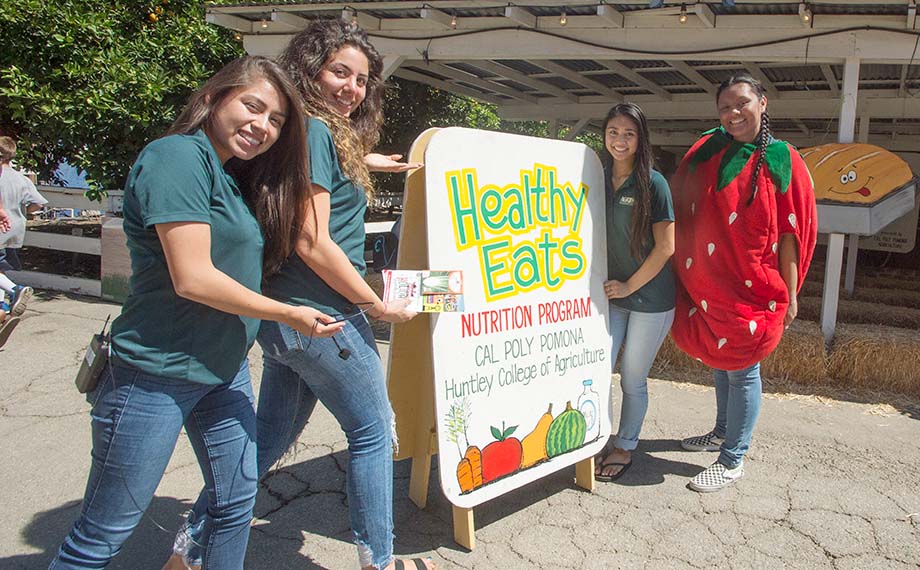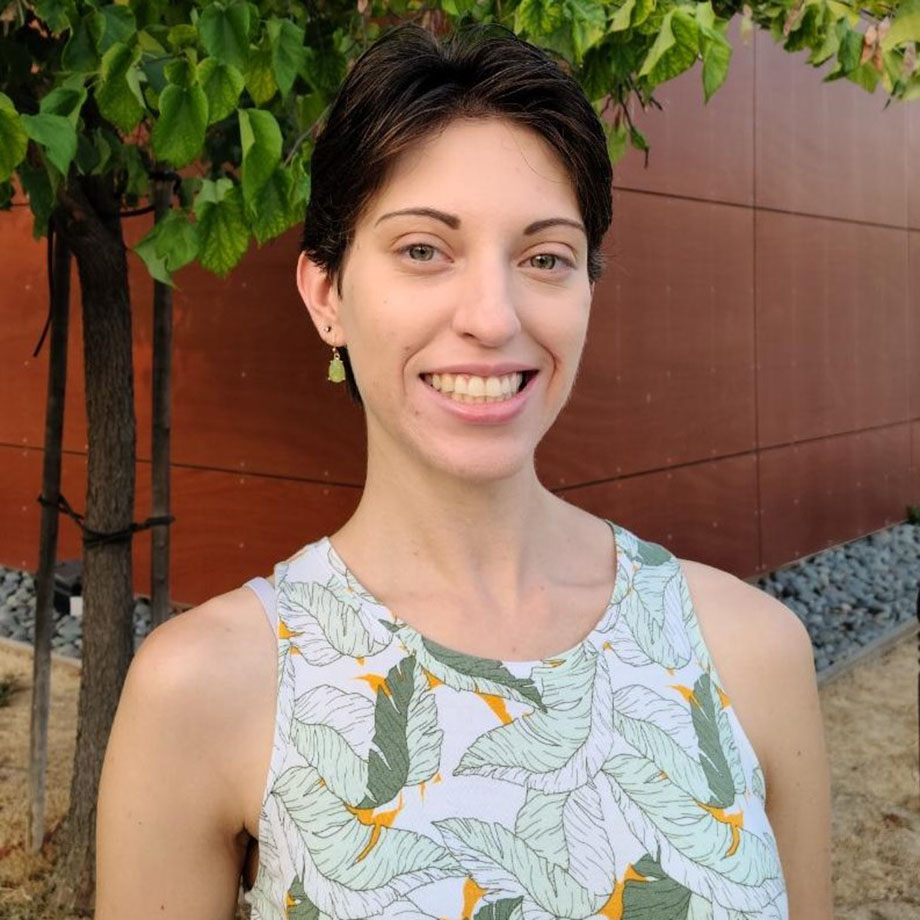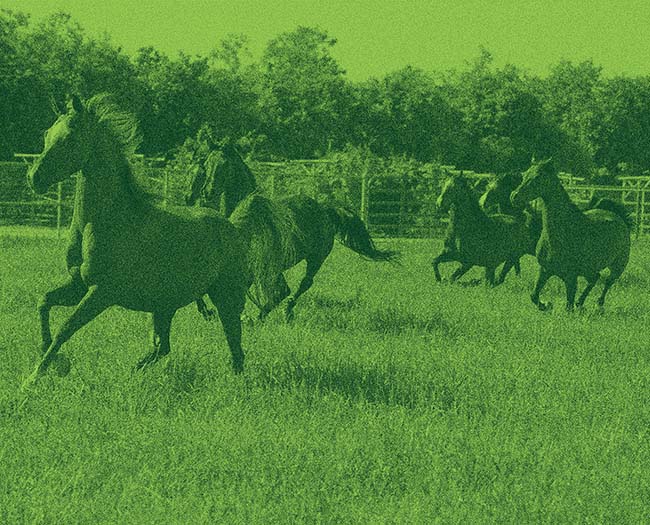Nutrition, B.S.
About the Major

Do you enjoy food and nutrition? Do you want to help people live healthy lives? Want to make new discoveries about diet, disease, and health?
Then the nutrition baccalaureate program is for you.
Among the possible careers you can pursue with a bachelor's degree in nutrition are research, teaching, consumer advocacy, health coaching, registered dietitian, healthcare professional, animal professional, or Peace Corps worker.
Many careers are possible in the private sector at hospitals and wellness centers, food and pharmaceutical companies, nonprofits and universities, veterinary offices, zoos, and farms. The World Health Organization, USDA, FDA, school districts, Women, Infants, and Children (WIC) programs, health departments, and other government agencies also offer jobs for graduates with nutrition backgrounds.
The nutrition program comes with three options:
Nutrition & Health
This option has two emphases:
- Nutrition & Health - Students in this emphasis choose additional classes to specialize and learn more about disease prevention, mental and/or physical health, biology, public health, sports medicine, or other areas.
- Health Coach - Students in this emphasis learn more about overall health, such as wellness and psychological aspects of health.
For more information, see the option description in the University Catalog.
Nutrition Science
This option promotes an appreciation for the multidisciplinary nature of modern nutrition research. The program prepares students with a sound scientific understanding of complex nutrition issues related to research, medicine, and health.
It integrates the core nutrition science courses with additional courses in the laboratory and health sciences. It provides several preparatory emphases.
- The pre-professional emphasis prepares students for a program of study necessary to enter medical, dental, veterinary, PharmD (doctor of pharmacy) schools, and graduate programs for master's degrees and doctorates.
- The animal nutrition emphasis prepares students to enter veterinary and graduate programs for master's degrees or to become a veterinarian.
Dietetics (Didactic Program in Dietetics or DPD)
Students who complete this option are eligible for post-baccalaureate supervised practice (dietetic internship) to become registered dietitian nutritionists (RDN) or take the registration examination to become registered dietetic technicians (NDTR).
Dietitians and DTRs work in hospitals, outpatient and long-term care facilities, community and government agencies, schools, or the private sector. Administrative dietitians supervise food services in hospitals, extended care facilities, colleges, schools, restaurants, and businesses.
The dietetics option is accredited by the Accreditation Council for Education in Nutrition and Dietetics (ACEND) of the Academy of Nutrition and Dietetics (AND).
Accreditation is required because dietetics is a complex profession that pertains to the health of our nation and therefore requires that the training adheres to national standards. ACEND determines these national standards for both the registered dietitian (RD) and the dietetic technician, registered (DTR) credential.
The Cal Poly Pomona dietetics option has a strong record of producing well-prepared pre-professionals with a strong foundation in science, evidenced by their success in both supervised practice and graduate school.
The practice of dietetics requires that individuals have experience with the knowledge and application of nutrition science, food preparation and management, and counseling to meet the needs of individuals, communities, and the nation.
Our state-of-the-art curriculum prepares students for applying to a dietetic internship, graduate school, a career in food service, food production, or public health.
Graduates of this major who complete the dietetics option are eligible to apply to supervised practice programs (dietetic internships). During supervised practice, which can be completed in combination with graduate work, the student gains training in a variety of dietetics practice areas (food service, community, and clinical) under the supervision of professionals.
Only after the satisfactory completion of all three — DPD coursework, a graduate degree, and an accredited dietetic internship — is the student eligible to take the registered dietitian exam.
The only way to earn the registered dietitian credential is to pass this national examination.
The DPD program is one step in becoming credentialed as a registered dietitian, because it provides only the classroom education component.
The student who has received their pre-professional verification statement may also apply to take the dietetic technician, registered, exam (see the dietetic technician tab for more information).
More Dietetics Information:
- Mission Statement and Goals
- Accreditation and Curriculum Maps
- Additional Information on Becoming a Registered Dietitian
- Current Dietetic Students
- Dietetic Internship Application Process
As of Fall 2021, the Didactic Program in Dietetics director is:
Emily J. Kiresich, PhD, MPH, MS, RD, FAND
Building 2-120
Phone: (909) 869-2213
Email: dpd@cpp.edu
NOTICE TO STUDENTS re: PROFESSIONAL LICENSURE AND CERTIFICATION
California State University programs for professions that require licensure or certification are intended to prepare the student to meet California licensure and certification requirements. Admission into programs for professions that require licensure and certification does not guarantee that students will obtain a license or certificate. Licensure and certification requirements are set by agencies that are not controlled by or affiliated with the California State University and licensure and certification requirements can change at any time.
The California State University has not determined whether its programs meet other states’ educational or professional requirements for licensure and certification. Students enrolled in a California State University program who are planning to pursue licensure or certification in other states are responsible for determining whether they will meet their state’s requirements for licensure or certification. This disclosure is made pursuant to 34 CFR §668.43(a)(5)(v)(C).

Alumni Success Stories
“The nutrition program provided me the knowledge and the skills needed to communicate nutrition information to clients from a variety of diverse backgrounds."Rebeca Roberts ('19, nutrition) Clinical Registered Dietitian, Metropolitan State Hospital



